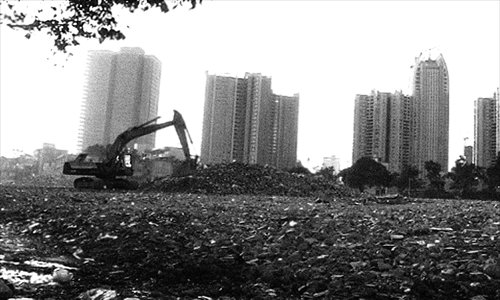Indie innovation

The outpouring of Chinese documentaries over the past decade has inspired and impressed audiences all over the world. However, the problem for audiences on the Chinese mainland is that accessing such films isn't always easy.
One forum in particular that provides a platform for such work to be enjoyed while at the same time giving Chinese filmmakers an opportunity to discuss their work with the public is the Indie Film Forum, which hosts monthly screenings at the Ullens Center for Contemporary Art (UCCA) in the 798 Art Zone.
Meng Xie, UCCA's art cinema programmer, helped launch the Indie Film Forum two years ago. Since then, he's witnessed growing interest from the public in new works from domestic filmmakers.
"Every month for this series, we present rarely seen Chinese indie and non-fiction films. I discuss the film selection each month with our event partner, along with filmmaker Liu Shu and film critic Zhang Xianmin," Meng told Metro Beijing.
Last Saturday, the Indie Film Forum screened two documentaries from Guangzhou filmmaker Huang Weikai. His films were chosen because they feature "true stories of ordinary people," Meng explained.
"Like most of the filmmakers we've already invited to this series, Huang's films focus on issues not in mainstream media coverage. However, he doesn't only document reality; he also experiments by manipulating reality, like with his film Disorder," Meng said, referring to Huang's 2009 documentary that examines Guangzhou's rapid urbanization.
Another one of Huang's films, Floating (2005), follows street musician Yang Jiwei, a rural-born guitarist and songwriter who moves to Guangzhou to eke out a living as a busker.
Viewers learn about Yang's hardships and his past love life as the film goes in reverse, beginning in January 2003 and ending in October 2002.
Huang drew inspiration for the film from his own emotions at the time. "The age of 30 is important for Chinese men, and I was 30 when I made it. The key objective for me was understanding how a man behaves at the age of 30 as a street singer," he said.
The documentary is a portrait of desperation and survival, two themes that run throughout his work captured without the use of music or narration.
Huang's sophomore effort, Disorder, saw him break new ground as a director by experimenting with different techniques.
"I tried something new and edited material shot by other directors, and then took everything and put it into one film," he explained.
Huang, who studied landscape painting at the Guangdong Academy of Fine Arts, admits he was unsure how to shoot documentaries when he made his foray into filmmaking. However, Guangzhou's breakneck pace of development that he witnessed while younger put him in good stead.
If it weren't for specialized film programs, a lot of smaller and low-budget films would remain unnoticed. Promoting such films at the grass-roots level supports filmmakers and gives the community a chance to experience something different in terms of cinema, Meng said.
"Our art cinema also screens over 200 films annually, including indie films, documentaries, retrospectives of cinema masters, video art, and experimental films," he said.